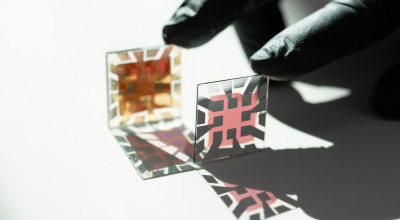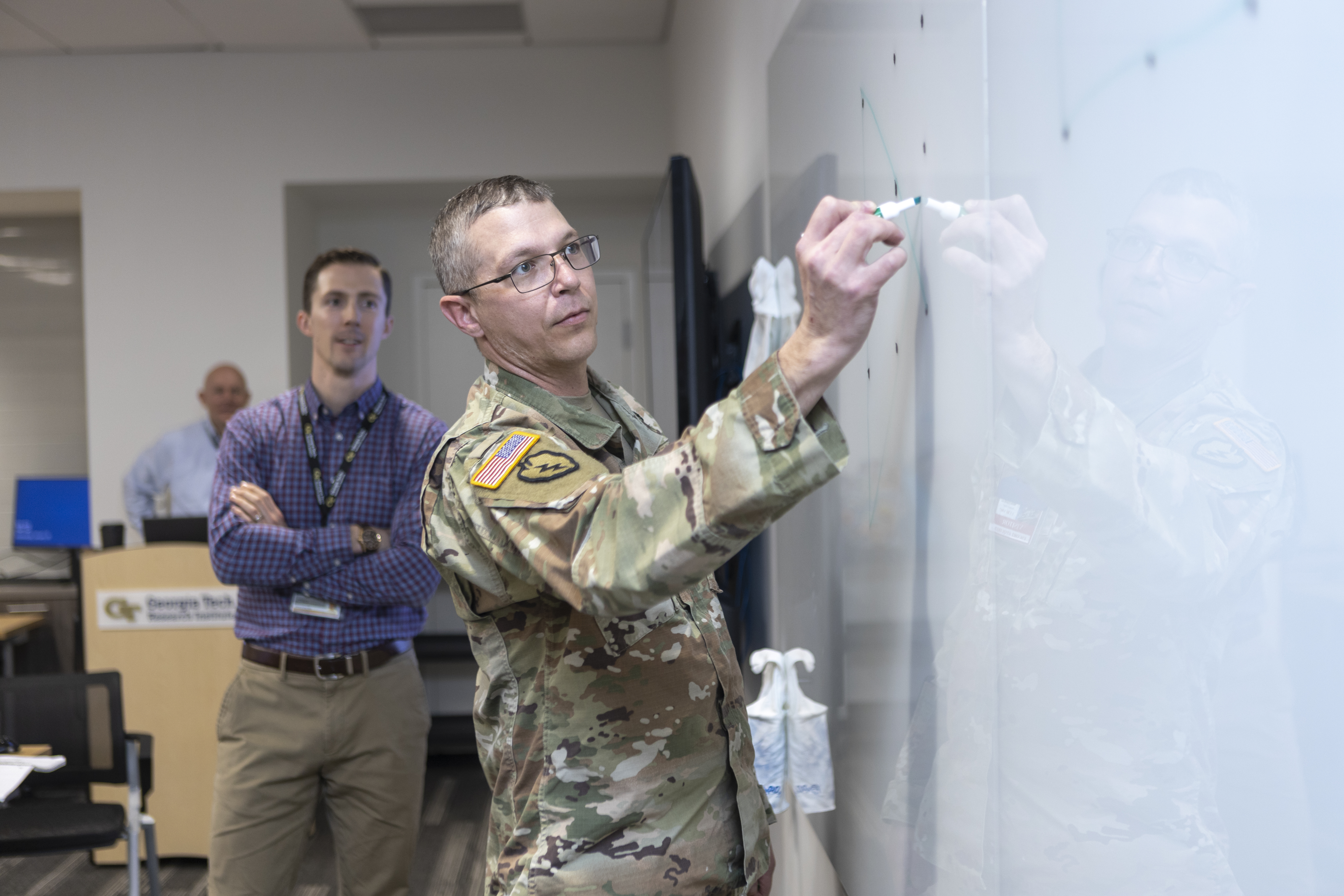
“We are losing 744 maintenance hours a month because of aircraft in phase maintenance,” explained Aviation Battalion Commander Lt Col Ernest Polk during his opening remarks at the 1-171st AVN Regiment Tour and Working Group.
On Jan. 18 and 19, GTRI’s ANGPD-Strategic Sustainment Team (SST) hosted a collaborative event meant to foster collaboration between the Georgia Army National Guard and the Georgia Tech Research Institute (GTRI), as well as invest in the development and advancement of research that addresses challenges for national security and the State of Georgia.
“The quagmire of ‘we have always done it this way’ can prevent us for looking at alternatives which causes unaddressed issues to add up over time,” continued Polk. “We are here to understand the system better so we can learn how to reduce downtimes by learning other processes and solutions.”
Innovation Through Collaboration
GTRI is committed to our mission of enhancing State of Georgia economic development and serving national security through strategic partnerships. The SST’s collaboration with the Georgia Army National Guard showcases how GTRI fosters these type of relationships to increase our impact on the state and nation.
GTRI’s SST is currently working with the H-60 Blackhawk Maintenance team to adapt commercial and military best practices to the 1-171st AVN’s maintenance operations.
“We’ve built our research portfolio learning from other aviation maintenance operations in the commercial space and Department of Defense. We’re excited to apply them to 171st to improve their readiness and operations” says Kyle Blond, the SST Lead who serves as the technical lead on this collaboration.
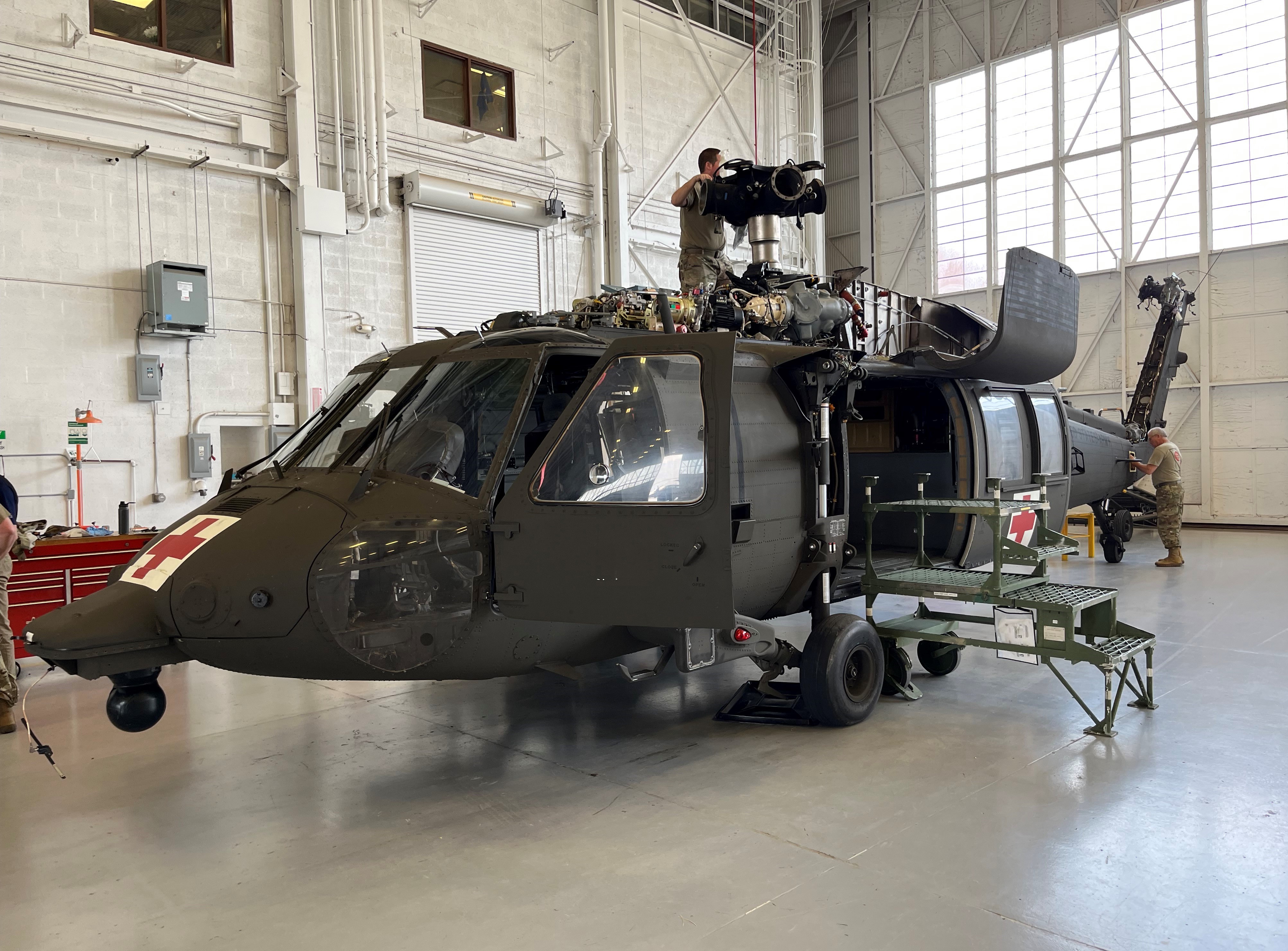
This effort, led by Senior Research Associate Calvin (Cal) Coker and Research Engineer II Kyle Blond, proposes a framing and discovery effort (i.e., system-level analysis, problem definition, solution development,) of these elements on Georgia Army National Guard helicopter units to survey opportunities for Inspection Development Framework (IDF) applications. IDF is a novel maintenance scheduling technique to increase aircraft utilization and availability that was successfully demonstrated on the USAF’s C-5 Super Galaxy. The 1-171st Aviation Regiments H-60 Blackhawk phase maintenance inspections will serve as a use case to validate and verify the potential for IDF improvements in the Army and Guard.
What Happened at the Kick Off?
The working group sessions created an environment where maintenance personnel were able to provide their unvarnished feedback and recommendations. Fourteen total attendees set to work to develop a viable solution.
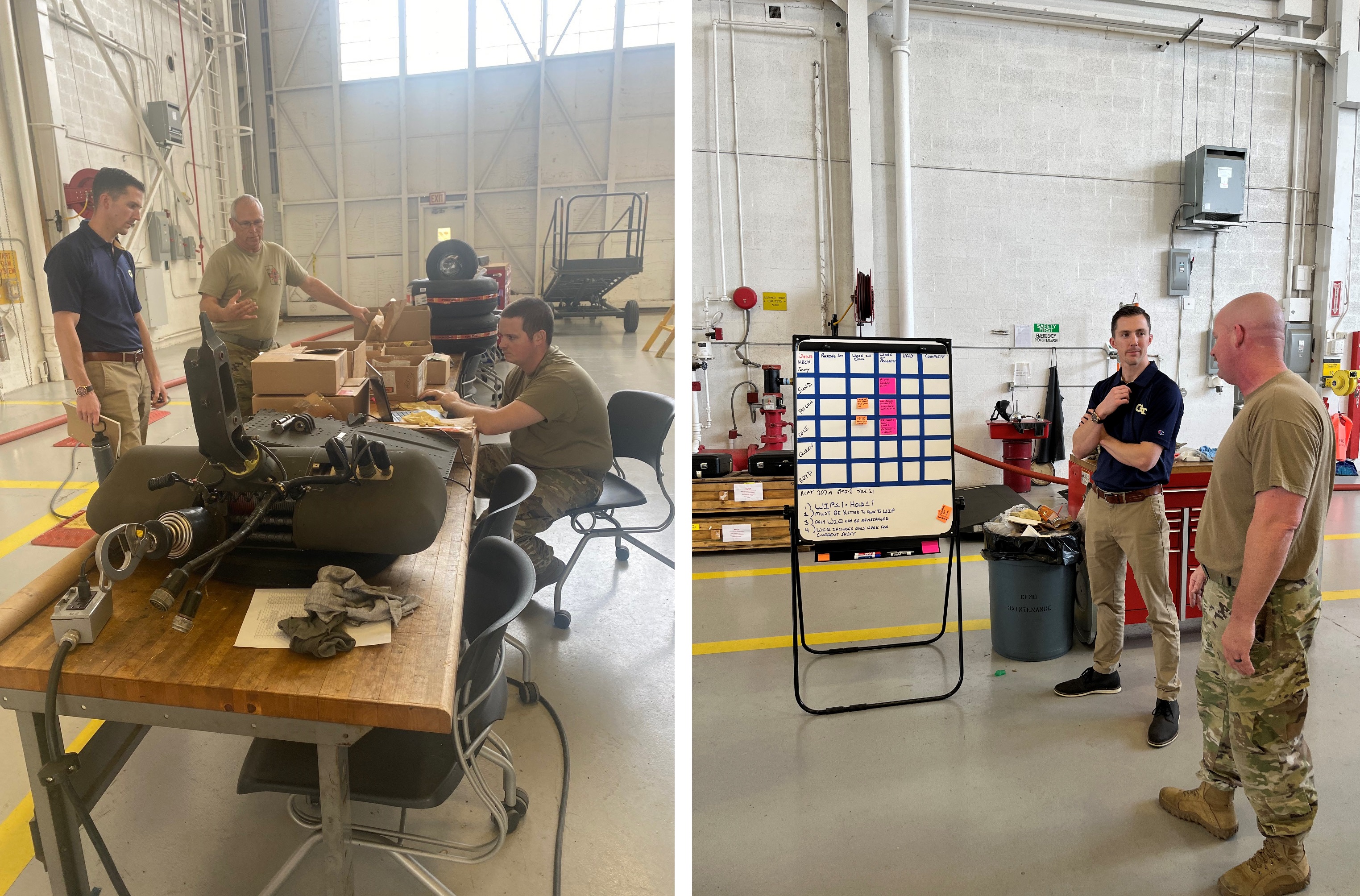
“’Buy-in’ is critical,” said Coker. “Encouraging problem definition and solutions development among the attendees are how positive outcomes can be achieved.”
Over the two-day event, attendees collaborated in sessions that began by defining the problem, developing a solution, and creating a plan for sustainment. Several GTRI employees, each with a unique background and outlook, provided important insight and contributions to the event.
- Kyle Blond is a research engineer and Doctorate of Systems Engineering candidate who led the technical effort employing Theory of Constraints and Systems Engineering principles to improve H-60 phase maintenance processes. He guided Army aviation personnel in attendance through two days of problem definition, solutions development, and actionable goals to reduce phase maintenance inspection timeliness.
- Maj. Jerry Garner is serving as a Military Fellow with GTRI through the Army National Guard Talent Development Program. He is learning about the efforts and impacts of applied research on the Department of Defense and how research opportunities can be scaled to support the Army National Guard. After his time in this role he will return to the Army National Guard to build on the knowledge, experience, and relationships from his time at GTRI to solidify the growing partnership between GTRI and the Army National Guard.
- Max Xu is a Co-Op supporting the SST across several projects, including this effort. He is an aerospace engineering major at Purdue University who is passionate about research applications that improve aviation.
- Cal Coker is a Senior Research Associate who organized the event and is the principal investigator for the Dependency Optimization for Guard Maintenance Activities (DOGMA) Independent Research and Development (IRAD) project.
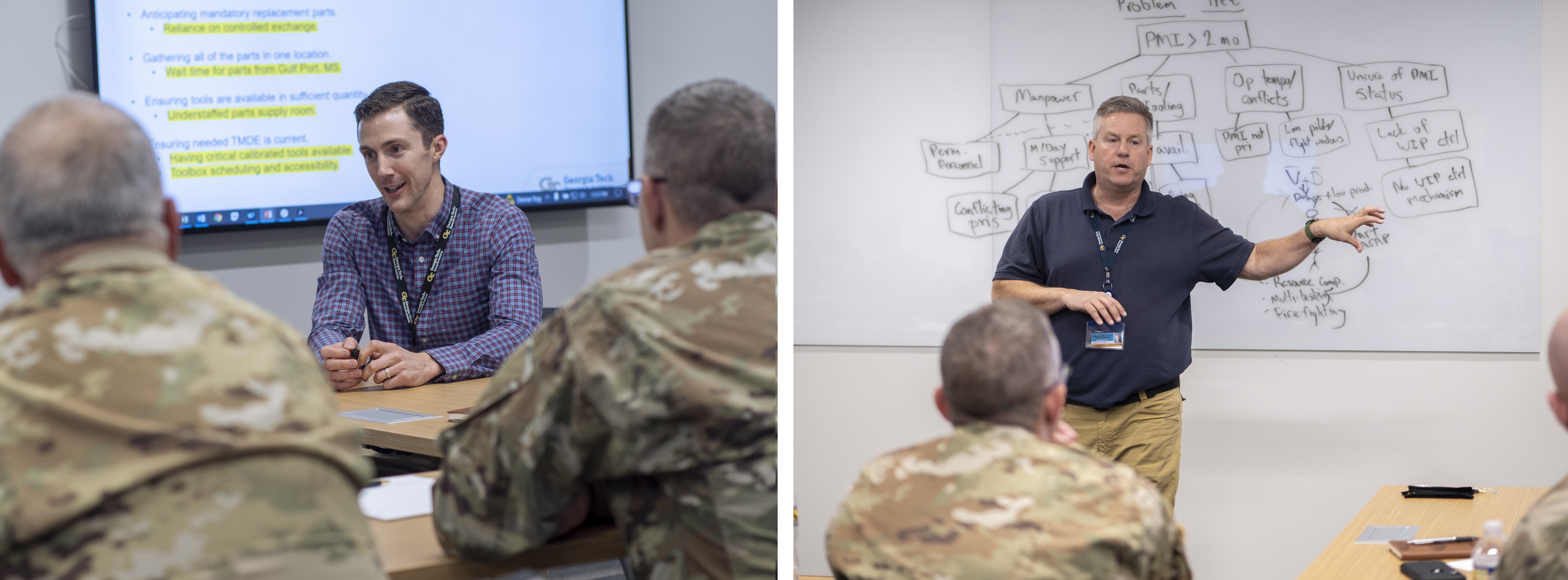
The work of these four individuals ensured the success of this event. By the end of the session, there were multiple solutions agreed on by those in attendance. The group turned their ideas into actionable steps that will be implemented over the next four months. These solutions will be analyzed, measured, and communicated in order to capture lessons learned that can potentially be scaled to other units in the Army National Guard.
Writer: Katrina Heitz
Photographer: Christopher Moore
GTRI Communications
Georgia Tech Research Institute
Atlanta, Georgia

The Georgia Tech Research Institute (GTRI) is the nonprofit, applied research division of the Georgia Institute of Technology (Georgia Tech). Founded in 1934 as the Engineering Experiment Station, GTRI has grown to more than 2,900 employees, supporting eight laboratories in over 20 locations around the country and performing more than $800 million of problem-solving research annually for government and industry. GTRI's renowned researchers combine science, engineering, economics, policy, and technical expertise to solve complex problems for the U.S. federal government, state, and industry.



